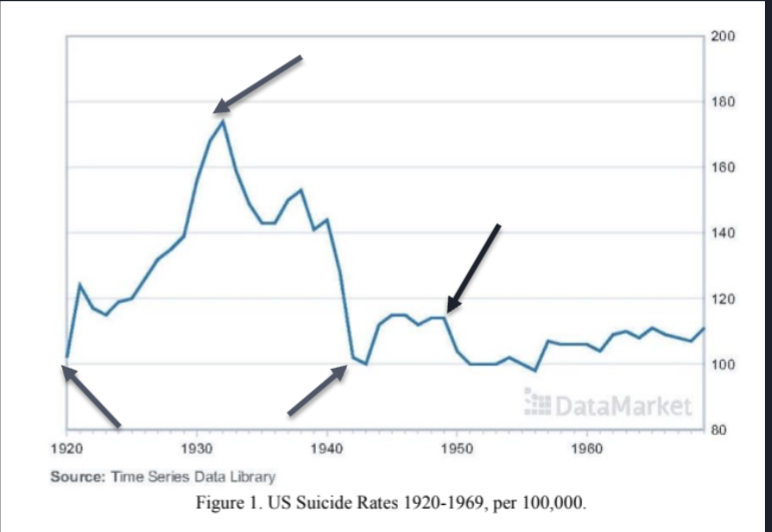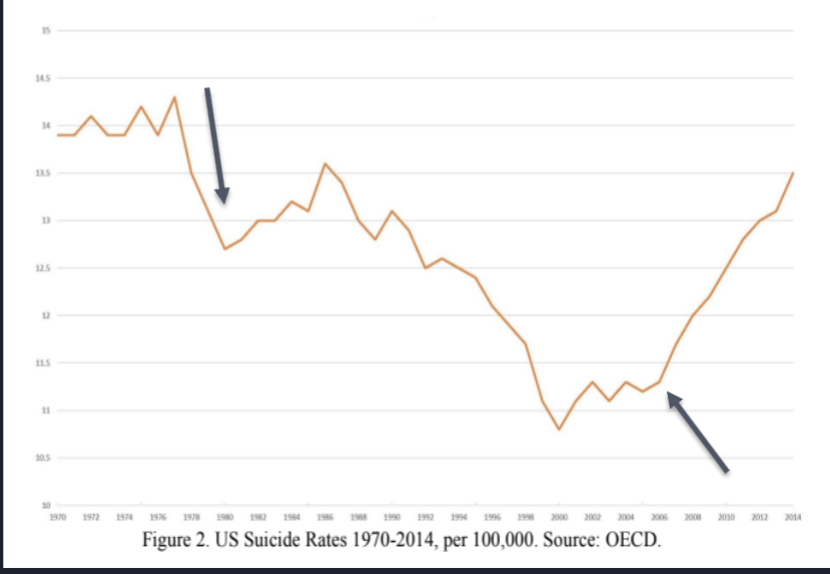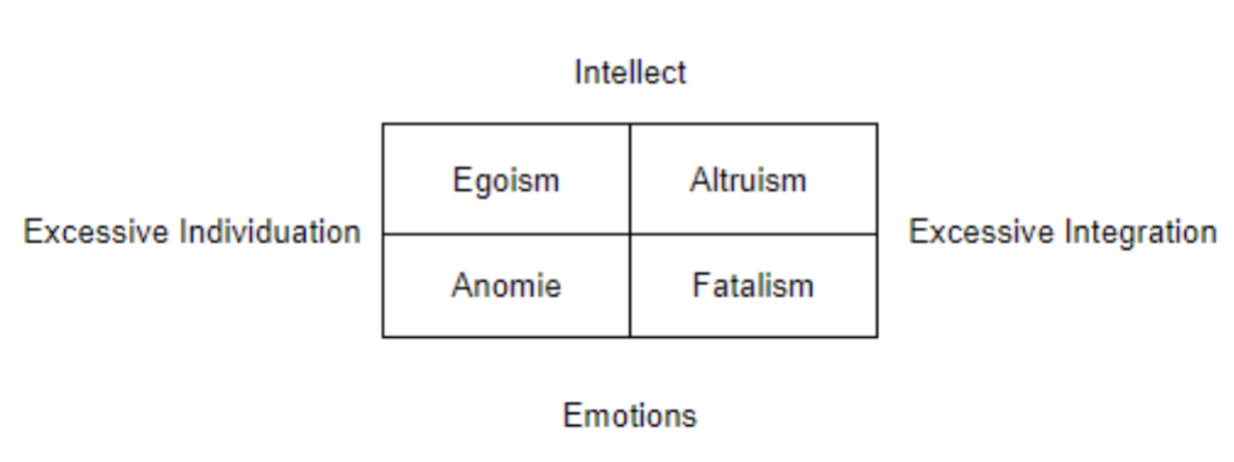Exam 1 Notes
The Origin of Sociology
The term ‘sociology’ was first coined and used by Auguste Comte, a French philosopher.
Emile Durkheim was the first sociologist to formalize the field and officially teach it.
Prior to this, most higher education revolved around philosophy.
Psychology, Sociology, etc. all emerged from philosophy.
Sociology did not suddenly appear in a vacuum, it took time and innovation to form it.
Auguste Comte
Wife: Caroline Massin (prostitute)
Developed The Three Stages:
Theological - Religion / Divinity
Where humanity starts
Religion used for practical purposes
Metaphysical - Magic / Intangible Principles
Started around middle ages
Knowing and using magical forces
Positive - Science / Physical / Material
Started around 1840s of Western Europe
“The Scientific Stage”
Science and statistics
Application of The Three Stages
Theological
Church
Monetary bills/coins - “In God We Trust”
“God Bless America”
Greek mythology for natural events
Did not disappear; still relevant today
Metaphysical
Children and their imagination
Healing crystals and holistic medicine
Lucky items
Natural law
Has not disappeared
Positive
Strictly measurable
Only physical, nothing but.
All or noting
Comte’s Downfall
Comte came up with a concept of religion of humanity
Comte wanted to make himself a priest
Wore priest robes, lit candles, and had an altar
Wanted sociology to become a religion
People saw him as weird
The marriage with his wife, Caroline
Comte died in 1857 and sociology died off
David Emile Durkheim (1858-1917)
The first formal sociologist, founded sociology and also anthropology.
Descends from seven generations of rabbis.
He went against his father’s wishes.
Established sociology at France’s Sorbonne (their Harvard)
Born on the border of Epinal in Alsace-Lorraine, Germany in 1858
Contested territory of France and Germany during war
Durkheim was born in a contested area between Germany and France. He took on the name “Emile” due to his Jewish name “David” being unfavorable in both France and Germany.
He studied Schopenhauer and was penned “Schopen” as a student
Durkheim is not hostile to religion compared to Comte
Wrote many books in different areas of sociology
Society is a naturally occurring system of symbols
The Division of Labor
The Division of Labor in Society (1893):
The Division of Labor animates the universe as a force.
It is everywhere, from organizations to organisms and ecosystems.
Two forms of solidarity:
1) Mechanical – integration and strength through sameness.
2) Organic – integration and strength through interdependence and specialization.
Anomie
Derangement of social functions or social dysfunction.
Dérégle in French
ANOMIE IS NOT NORMLESSNESS
There is a need for a little anomie
Suicide
Known for Suicide in 1897
Social Fact = Social Force
4 Types of Suicide
Social Integration vs ‘Bowling Alone’

1918 - WWI
1930
1940 - WWII
1950s-1960s

1990
2008
Durkeim’s Findings on Suicide
Men - Women
Urban - Rural
Educated - Uneducated
Rich - Poor
Single - Married
Childless - Children (the more the better)
**Solution - Social Integration**
The 4 Social Currents of Suicide
Egoistic – suicide due to no social group / no social integration.
Altruistic – suicide due to a service or duty / no individuation.
Anomic – suicide due to too many choices / no social direction.
Fatalistic – suicide due to the inevitable / too much social direction.
Understanding the Social Currents: Chiasmus

Durkheim & Riesman on Suicide

Max Weber (1864-1920)
Born to a wealthy family
Weber had a law degree
Married his cousin, Marianne
Clinical Depression for ~4 years
Trip to United States and notes his experiences
Wrote The Protestant Ethic and Spirit of Capitalism (1904)
The Protestant Reformation
Martin Luther and John Calvin
Doctrine of Predestination:
The Elect
The Damned
The Protestant Ethic and Spirit of Capitalism
Calvinists
The Calling
Habit
Iron Cage
Bureaucratic nightmare
Dehumanized
Karl Marx (1818-1883)
Born in Germany and was a young Hegelian
Considered as a political economist and philosopher
Wrote same time as Comte but before Durkheim and Weber
Wrote the Communist Manifesto
2 class system
Proletariat – the means of work
Bourgeoisie – own the means of production
Communist Manifesto
Marx wanted the ruling class to take over the government and have it control all social functions
Banking, transportation, communication, etc.
Followed Comte’s Positive Stage
Trust the government
Current day issues
Social Media
China’s Social Credit Score
The Three Branches of Sociology
Structural Functionalism
Emile Durkheim
Talcott Parsons
Pitirim Sorokin
Conflict Perspective
Karl Marx
Max Weber
Symbolic Interactionism
William James
George Herbert Mead
Three Major Theories
Functionalism- started by Durkheim, elaborated by Talcott Parsons.
What are the parts of society and what do they do?
Conflict- started by Marx, elaborated by Max Weber and several others.
History is driven by conflict.
Symbolic Interactionism- started by William James and George Herbert Mead.
Reality is socially constructed.
Talcott Parsons (1902-1979)
Was an Economist; had a PhD
Learned about Durkheim and Weber
American Sociologist
Translated much of Durkheim’s work
Hired at Harvard
Talcott and Functionalism
Equilibrium
Society is a self correcting system
Homeostasis
Body self-regulates
Cybernetics
Machines able to maintain equilibrium
Society is a self-correcting system. A healthy society is functional. An unhealthy one is dysfunctional. If needs are met: functional. If needs are not met: dysfunctional.
Pitirim Sorokin (1889-1968)
Born in Russia during Communist Takeover in 1917 later turned American
Influenced by Durkheim
Sentenced to execution 10-12 times
Becomes first head of Department of Sociology in Harvard
Known for Sensate Culture (1941)
Sorokin and The Sensate Culture
Tragic Dualism – inner-self contradictions that are irreconcilable.
Chaotic Syncretism – formlessness from undigested parts of various cultures.
Quantitative Colossalism – blind growth at the cost of refinement.
Diminishing Creativeness – no new classics, cultural recycling, across the board.
The immaterial status of society is important. Social health can lead to either integration and freedom or oppression and genocide.
Parsons vs. Sorokin
At Harvard
Parsons theory on equilibrium
Society will self-correct
Sorokin and the sensate culture
Society will dissolve
Conflict Theory
Karl Marx’s idea that class conflict is the basis of human history.
Solved through government control of every aspect of society: banking, education, communication, transportation, health care, etc.
Do we really want this?
Marx wanted to eliminate religion, his words, “freedom from religion”.
Marx following along with Comte
William James (1842-1910) and Symbolic Interactionism
Family of hypochondriacs
Was an MD
Father of:
Psychology
Symbolic Interactionism
Pragmatism
Social construction of reality
Pragmatism
James wrote Pragmatism and Other Writings
“Truth happens to an idea”
Focused on the theory of Rationalism and Pragmatism
Rationalism – close minded
Pragmatism – open minded
The Self
Material Self – extending the self to physical items. Imbuing oneself onto things.
Social Self – how we exist in the minds of others. It varies by observer.
Spiritual Self – the underlying part of ourselves that hold prior info and experiences.
Pure Ego – the active, thinking self. It is a synthesis of the other three together.
The self is constructed
George Herbert Mead (1836-1931) and Symbolic Interactionism
Was a student and babysitter for James’ kids
Adds to James’ theory of The Self
Meads students published his lectures
Known for: Mind, Self, and Society (1934)
I – the id; impulsive
The needs of the self
Me – the ego; the mediator
The direction of the self
Generalized Other – the rules about what’s expected
Following expectations when others aren’t physically around
Stages of Children’s Self-Development
Developed by Mead to explain and show how children socialize:
The Language Stage - learning and interacting through imitating
The Play Stage - acting out social roles and pretending
The Game Stage - organized rules that govern relationships and play with others
Generalized Other - acting in accordance with understanding and knowing about the perspective of others. There exists a representation of others in your mind
Horace Miner and Symbols
Wrote Body Rituals of the Nacirema
Focuses on symbols from 1950’s
Nacirema Symbols
Shrines
Charm boxes
Small front
Medicine men
Holy mouth men
Latipso
Listener / Witch doctors
Viewing America from an outside perspective
‘Nacirema’ = ‘American’
Human body = diseased-filled / ugly
Socialization
Charles H. Cooley
Cooley is a symbolic interactionist
Was influences by William James
Expands the Social Self
Social Organization (1909)
Known for The Looking Glass Self
Social Organization (1909)
The Looking Glass Self - how individuals develop their sense of self comes from how they believe they are perceived. The way you exist to other people defines the reality of how you are treated.
Primary and Secondary Groups
Created by Charles H. Cooley
Inspired by Durkheim
Primary - face to face
Permanent: supportive role
Family
Children being born - patients holding their baby is establishing the bond
Linkage of primary group for family
Military perspective - being in the same unit established bonds and friendships
Secondary - not face to face
Temporarily: reliant on media
“Bowling Alone”
Isolation
Role vs. Status
Role - what is expected of you
Depends on whether you have the gyroscope (inner) or radar (other)
Status - your position in society
Ex: professor, doctor, student, senator
Role strain - difficulty that arises when the same social position imposes conflicting demands and expectations
Leads to Weber’s iron cage - dehumanizes the person
Ascribed vs. Achieved Status
Ascribed status - status that is assigned at birth
Race, gender, age
Achieved status - status that is earned or acquired
Lawyer, student, roommate, friend
Erik Erikson
Father died when he was little
Mother refused to tell who hid father is
Ran away from home
Renamed himself Erikson of Erik
Had Sigmund Freud’s daughter, Anna, as his therapist
Never went to college or received a degree, but ended up at Harvard
Stages of Psychosocial Development
Infant - Trust vs. Mistrust
When you are helpless and cry and parents/family helps you, the world is trusting
If you are yelled at or neglected, the world is a mistrustful place
It can become hard to ask for help as an adult. Delegating responsibilities is something you find difficult
Toddler - Autonomy vs. Shame & Doubt
Generally seen with potty training. Was this celebrated and successful? If so, you tend to be autonomous
If you are punished for failure, you feel shame and fundamentally doubt yourself
Anxiety as an adult, issues in public speaking, a need for rigidity and instruction
Preschool - Initiative vs. Guilt
When you tried something new was it rewarded?
Or were you lectured for not doing something or doing it wrong?
Isolation and excess routine, overly risk averse, feeling responsible for things that are not your fault
Grade School - Industry vs. Inferiority
Are your efforts recognized and rewarded? Can the child succeed in their environment? If yes, they become industrious
If not, they develop a sense of inferiority
Feeling like you are never good enough, overthinking
Teenager - Identity vs. Role Confusion
Moratorium between childhood and adulthood where one learned to develop adult ethics
A time-out where you get to try new things without adult consequences
Purposelessness, directionless, immaturity
Young Adult - Intimacy vs. Isolation
Adult relationships form. Are they based on emotional closeness and personal?
Or are they distant and isolated?
Loneliness, no long-term bonds, loss of close friends
Middle-Aged Adult - Generative vs. Stagnation
Does the adult feel as if they have been productive? Like they are contributing?
Or do they feel like they are slowing down, worthless, and becoming dull?
Midlife crisis
Older Adult - Integrity vs. Despair
If life was lived well, looking back fills you with a sense of integrity and accomplishment
If looking back fills you with sadness, failure, and missed opportunities, this developed a sense of despair. It feels bad to have failed
Big regret
Problems and Issues in Socialization
Feral children
Lack of primary groups
A broken and conflicting generalized other
Role conflict and role strain
Cyberbullying
Georg Simmel
Known for The Stranger
Someone is near, yet far
A person can physically be close, but socially far from it
Applies to social networks
Connects to the sensation Riesman describes his title, The Lonely Crowd
Emory Bogardus
The Bogardus Social Distance Scale - a test that evaluates people’s willingness to interact with others demographically different from them to increasing degrees of closeness
Originally used to measure racial relations
If you have a high score, you are distant from that group, if you have a low score, you are close to that group
Applies to diverse social, ethnic, and racial background
Questions include:
Would you talk to someone from x group?
Would you get lunch with an x person?
Would you be willing to live near an x person?
Would you be willing to have a person from x group in your home?
The questions begin broadly and then narrow
The Lonely Crowd
Agents of Socialization
Socialization of the inner - how you transmit the social agreements to the next generation
Authority figures: parents, teachers, etc.
The gyroscope
Socialization of the other - there is no transmission of the social agreements
The Radar
Social media; you turn to peers and media
Parenting
Inner - authoritative and rigid
Leads back to the gyroscope
Other - uncertainty
Parenting guides
‘I want to be your friend’
Social media as the new parent
Marginal Differentiation
You want to be different to fit in, but not too different to stand out
E.g., decorating your apartment
Riesman and Jury of the Peers
A jury of the peers - the other-directed feeling as being judged by a group of their peers constantly
Inner - play is left to the children
Other - play is important to social relations
The Lonely Crowd: Jury of the Peers
Socialization with the inner
Free to play with whoever
Competition with the other
Social media
The need to “outdo” others
Competition in current day
Everyone’s a winner